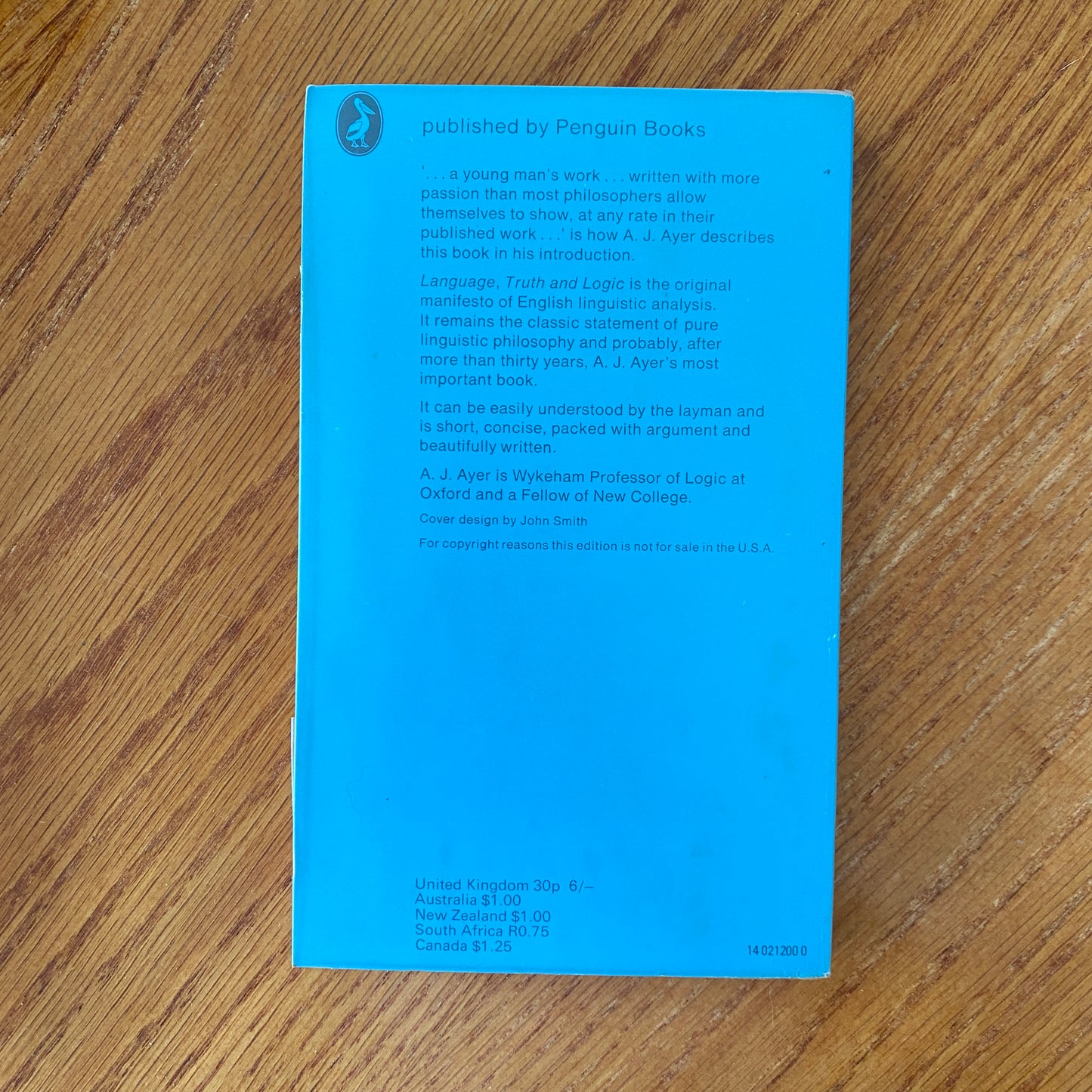Rumorbooks
Language, Truth and Logic - A. J. Ayer
Language, Truth and Logic - A. J. Ayer
Couldn't load pickup availability
“Language, Truth and Logic” by A. J. Ayer is a foundational text in the philosophy of logical positivism, which asserts that philosophical problems should be approached with the same empirical rigor as the sciences. First published in 1936, the book challenges traditional metaphysics and examines the relationship between language, meaning, and knowledge.
Ayer argues that many philosophical statements lack empirical content and therefore cannot be meaningfully asserted. He introduces the verification principle, which posits that a statement is only meaningful if it can be verified through observation or logical proof. This principle is used to critique various philosophical arguments, particularly those related to metaphysics and ethics, which Ayer deems nonsensical due to their inability to be empirically validated.
Throughout the book, Ayer explores the implications of his ideas for understanding truth and meaning in language. He discusses the nature of scientific discourse, the role of language in conveying truth, and the limits of philosophical inquiry. By emphasizing the importance of logical clarity and empirical verification, Ayer seeks to redefine the boundaries of philosophy.
Written in a clear and engaging style, “Language, Truth and Logic” has had a significant impact on 20th-century philosophy, influencing debates in epistemology, ethics, and the philosophy of language. It invites readers to reconsider the nature of knowledge and the role of language in shaping our understanding of the world, making it an essential read for anyone interested in modern philosophy.
Share




